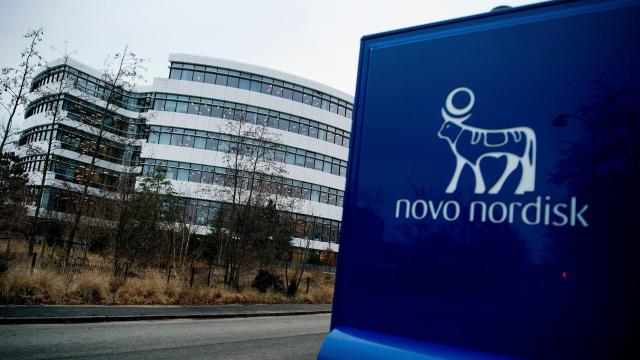A recently FDA-approved weight loss drug heralded as “game-changing” by some researchers is selling like hotcakes. On Wednesday, Novo Nordisk announced an unexpectedly strong third quarter, fuelled by the release of its obesity drug Wegovy in the U.S. earlier this summer. The drug’s popularity has made it hard to get for some prospective patients, however, since there is an ongoing supply shortage of it — a shortage that probably won’t clear up until early next year.
According to the Associated Press, the Danish pharmaceutical company reported that its third-quarter sales grew by 15% relative to last year. The company was clear that Wegovy played a big part in that growth, along with sales of its type 2 diabetes drugs. “In the US, the initial demand for Wegovy has significantly exceeded our expectations, underscoring the high unmet need for people living with obesity,” said Lars Fruergaard Jørgensen, Novo Nordrisk president and CEO, in the company’s announcement of its earnings.
In clinical trials, Wegovy reduced the average body weight of people living with obesity by around 15% in a year’s time, when compared to placebo. That’s a degree of weight loss that hasn’t been seen with older anti-obesity drugs, and only the most effective (and permanent) bariatric surgeries are thought to provide greater weight loss. The active ingredient in Wegovy, called semaglutide, is the same found in its existing diabetes drugs Ozempic and Rybelsus. Semaglutide is a synthetic version of GLP-1, a hormone important to our regulation of hunger and metabolism; the synthesized version can stay in our system longer than native GLP-1. Both Wegovy and Ozempic are taken via a weekly subcutaneous injection, though Wegovy uses a higher dose of semaglutide.
Wegovy’s trial results were enough to convince the FDA to approve the drug this June, making it the first new obesity drug in almost a decade. Many researchers have been vocal about their hopes that Wegovy may usher in a new era of obesity medicine. Trials of other GLP-1 and similar hormonal drugs are ongoing, some of which have shown even more pronounced weight loss results. At the same time, some researchers and advocates have been less enthused, arguing that obesity shouldn’t be medicalized as a disease and that these drugs could pose unknown long-term risks, including unhealthy cycles of weight loss and gain. One study by Novo Nordisk has shown that people who stop taking Wegovy after a few months tend to regain much of their lost weight within a year.
The drug isn’t without its side-effects, either, which include gastrointestinal symptoms like nausea, constipation, and diarrhoea. In clinical trials, about 6.8% of patients stopped using the drug as a result of these adverse events. And even some patients publicly supportive of semaglutide later stopped taking it due to symptoms they experienced as their dose got higher. The drug, like all current GLP-1 drugs, carries a warning about the potential increased risk of a rare form of thyroid cancer, and those with a family history of the cancer are explicitly advised against using it.
“My question would be: Does this drug — does it actually make people healthier? And I don’t think we have an answer to that.” Harriet Brown, an author and journalist who has written about the science of weight loss, told Gizmodo earlier this year soon after the debut of Wegovy.
One thing that is clear is that the demand for Wegovy has outstripped its supply. Novo Nordisk has admitted that it would not be able to keep up, adding that it would likely take until early 2022 for the supply to stabilise and that some patients “are experiencing an approximate one month or longer delay in filling prescriptions for Wegovy.” Another problem has been the lack of consistent insurance coverage for the drug, which can cost as much as $US1,600 (A$2,153) per month. Public payers such as Medicare will not cover the drug, due to a existing rule concerning weight loss treatments, and only a few private insurers have explicitly said that they will cover it. In response, the company has been providing six-month waivers to some insured patients that will cap the drug’s out-of-pocket costs at $US25 (A$34) a month, though the long-term picture of coverage is still in flux.
Despite some of the uncertainty surrounding Wegovy, the company is going all in. Last month, it launched an ad campaign starring Queen Latifah that was ostensibly framed as a way to raise awareness of obesity treatments, ahead of a more direct campaign for Wegovy scheduled for early next year. Novo Nordisk has also formed a partnership with CVS Health to debut a “personalised nutrition coaching program” at various CVS locations for those who have been prescribed an obesity treatment.
